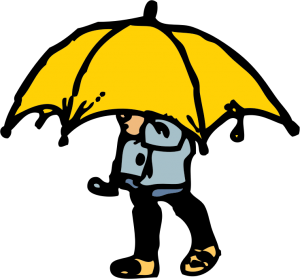Big and Small Posted by Bjørn A. Bojesen on Feb 28, 2015 in Uncategorized
The Norwegian words for ’big’ and ’small’ are a bit more complex than your average adjective. Let’s start with stor, which covers most instances where you’d use the words big or large in English:
• en stor tanke (a big thought) – den store tanken (the big thought) – tanken er stor (the thought is big)
• ei stor jente (a big girl) – den store jenta (the big girl) – jenta er stor (the girl is big)
• et stort fjell (a big mountain) – det store fjellet (the big mountain) – fjellet er stort (the mountain is big)
• store katter (big cats) – kattene er store (the cats are big)
(As you already know, a -t is usually added to adjectives describing neuter nouns, while an -e is added to adjectives describing both plural nouns and definite nouns, that is, nouns that ”singled out” somehow: dette store fjellet – this big mountain [and not another one]; Karis store tanke – Kari’s big thought [and not someone else’s].)
Okay, that’s still like most Norwegian adjectives would behave – but look at ’bigger’, ’biggest’: større, størst:
• fjellene er større i Sogn og Fjordane (the mountains are bigger in Sogn og Fjordane)
• Oslo er den største byen i Norge (Oslo is the biggest city in Norway)
The word for ’little, small’ is totally messed up – it’s liten in the masculine, lita in the feminine, lite in the neuter:
• en liten gutt (a little boy)
• ei lita jente (a little girl) – – Please note that many people tend to ”go masculine” in writing, expressing things like jenta er liten, which is felt to be more ”formal” than jenta er lita!
• et lite barn (a small child)
However, this word becomes lille when describing definite nouns:
• den lille gutten (the little boy)
• den lille jenta (the little girl)
• det lille barnet (the little child)
(Some people also use the word vesle here – it’s very Nynorsk-ish: den vesle gutten, den vesle jenta, det vesle barnet.)
And, even weirder, ’little’ is små whenever plural nouns are described:
• barna er små (the children are small/little)
• jeg liker de små bygdene (I like the small villages)
The word små can be ”re-singularized” as smått (”something small”), which is used in some fixed expressions:
• det er smått med penger (there’s little money [left])
• smått om senn (little by little)
Føler du deg litt forvirret nå? (Feeling a bit confused now?)
Don’t worry, were almost there. The only thing lacking is ’smaller – smallest’: mindre – minst:
• bygdene er mindre i Nordnorge (the villages are smaller in Northern Norway)
• sist, men ikke minst: (last, but not least:)

Build vocabulary, practice pronunciation, and more with Transparent Language Online. Available anytime, anywhere, on any device.
About the Author: Bjørn A. Bojesen
I was born in Denmark, but spent large parts of my childhood and study years in Norway. I later returned to Denmark, where I finished my MA in Scandinavian Studies. Having relatives in Sweden as well, I feel very Scandinavian! I enjoy reading and travelling, and sharing stories with you! You’re always welcome to share your thoughts with me and the other readers.





Comments:
David Russell:
Yo Bjørn, I just wanted to letcha know about a small typo. You said…
“ei lita jente (a little girl) – – Please note that many people tend to ”go masculine” in writing, expressing things like jenta er liten, which is felt to be more ”formal” than jenta er liten!”
But did you mean to write…
“ei lita jente (a little girl) – – Please note that many people tend to ”go masculine” in writing, expressing things like jenten er liten, which is felt to be more ”formal” than jenta er liten!” ?
(Many thanks for this blog–it helps tremendously!)
Bjørn A. Bojesen:
@David Russell Yo David,
thank you for spotting that! 🙂 I’ll correct the page, so you can see what I meant.
(Also thank you for the compliment. I hope you’ll keep learning Norwegian!)